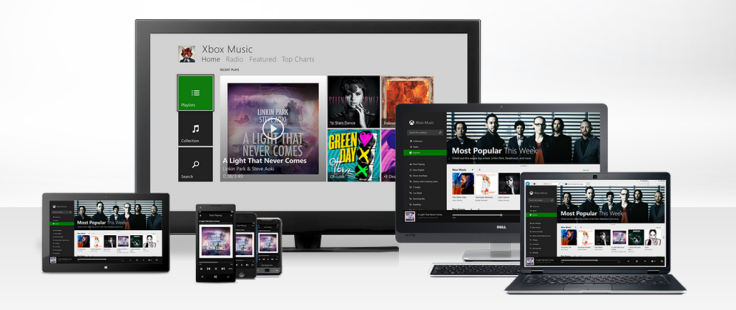Microsoft’s Xbox Music Will Soon Play Your Tunes From The Cloud For Free

Microsoft Corp. is planning to add a new feature to improve its Xbox Music service in the face of streaming rivals like Spotify and Google Play Music All Access. Details found within Microsoft’s products reportedly reveal its plans to allow users to play back their own music files from the cloud, using the company’s OneDrive storage service.
The best part of Xbox Music’s new feature? It will be available for free to anyone who wants to use it. While other services like Spotify offer similar features, and Google’s All Access offers the exact same, neither are currently supported on the Microsoft’s gaming consoles, the Xbox 360 and newer Xbox One. The following text files from Microsoft’s Xbox Music website revealed several details about the upcoming service, first reported by Neowin:
Anyone with a Microsoft account in select regions can add music to OneDrive and play it on Xbox Music. Connect OneDrive with Xbox Music and play your personal music files on all your devices. Music you upload to OneDrive can be streamed from your collection on all your Xbox Music devices.
Upload the music you already own to OneDrive and we'll add it to your Xbox Music collection. All the songs in your OneDrive Music folder are automatically added to your Xbox music library. You can play them from your Windows Phone 8.1, Windows 8.1 PC or tablet, Xbox, or on the web.
The feature would let users upload their own audio files to the Xbox Music the OneDrive, and then play them back on the Xbox, as well as related apps for Windows. A report from Windows Phone Central says the new feature could replace Xbox Music’s free Pandora-style radio service, which Microsoft will cancel as of Dec. 1. The site also reported Microsoft automatically creates a Music folder for OneDrive users who visit a specific URL, giving them 20 gigabytes of free storage as well, in preparations for the new feature.
© Copyright IBTimes 2025. All rights reserved.




















